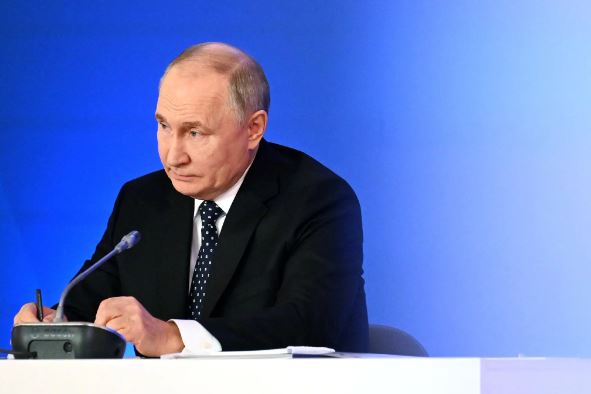Efforts to dissuade Russia from deploying an antisatellite nuclear weapon in space have intensified, with American officials obtaining information that challenges Moscow’s claims of pursuing peaceful scientific purposes, according to a senior State Department official on Friday.
The growing concern over Russia’s development of a new generation of space nuclear weapons has prompted American officials to push for international action, particularly after Russia’s veto of a U.N. measure aimed at preventing the deployment of such weapons in space. Republicans have criticized the Biden administration for what they perceive as insufficient deterrence measures against Russian activities, while also expressing concern over China’s stance on the issue.
Mallory Stewart, the assistant secretary of state for arms control, revealed that the United States has been closely monitoring Russia’s pursuit of the weapon, noting recent advancements in assessing their progress. She highlighted critical information suggesting that the orbit intended for the Russian satellite is situated in a high-radiation region not typically utilized by other satellites, casting doubt on Russia’s assertions of benign intentions.
Stewart condemned Russia’s veto of the U.N. Security Council resolution and urged global cooperation in preventing the deployment of a nuclear-armed satellite. Emphasizing the potential repercussions, she stressed that the weapon could disrupt lower earth orbit, home to crucial satellites vital for communications and national security.
While the weapon is not yet deployed and poses no immediate threat, its potential impact on global satellite operations is significant. Stewart reiterated the importance of diplomatic efforts to thwart Russia’s program, highlighting the potential indiscriminate effects on all nations.
Unlike conventional nuclear arsenals, the weapon in question is not designed to target Earth directly but poses a threat to both commercial and military satellites. The deployment of such a weapon could disrupt vital global communication networks and scientific endeavors reliant on satellite technology.
Russia is set to defend its veto at the U.N. General Assembly, with China’s abstention from the Security Council vote and support for a Russian amendment complicating international efforts to address the issue. American officials have expressed concerns over China’s alignment with Russia’s position and have called on Chinese authorities to leverage their influence to dissuade Russia from proceeding with the weapon’s deployment.
Secretary of State Antony J. Blinken previously appealed to Chinese officials to intervene, emphasizing the potential consequences of Russia’s actions on global satellite operations. Despite such efforts, Russia’s defiance of existing arms control treaties, including the 1967 Outer Space Treaty, has raised doubts about its commitment to international law.
While President Vladimir V. Putin has denied intentions to deploy a nuclear weapon in space, American officials remain skeptical, citing evidence of Russian preparations for potential deployment. Representative Michael R. Turner has likened the situation to a “Cuban missile crisis in space,” urging the Biden administration to take more assertive measures to deter Russian activities.
Defense Secretary Lloyd J. Austin III emphasized the grave consequences of deploying a nuclear-armed antisatellite weapon, stressing the need for concerted efforts to prevent such actions. American officials view Russia’s actions as a challenge to international norms and underscore the urgency of addressing the threat posed by the potential deployment of the weapon.
American officials are intensifying efforts to rally international support in deterring Russia from deploying an antisatellite nuclear weapon, underscoring the importance of preventing actions that could disrupt global satellite operations and endanger international security.

